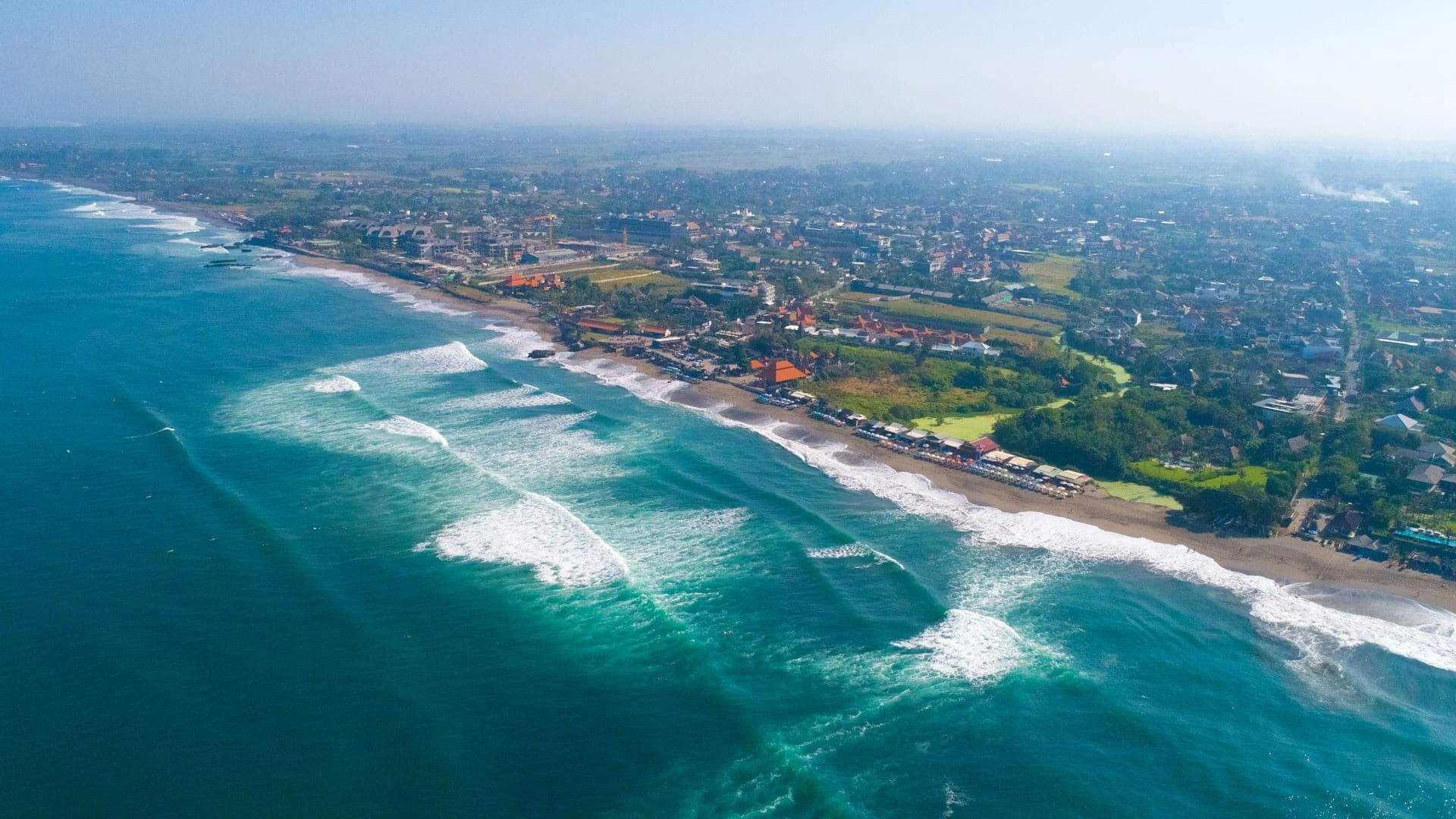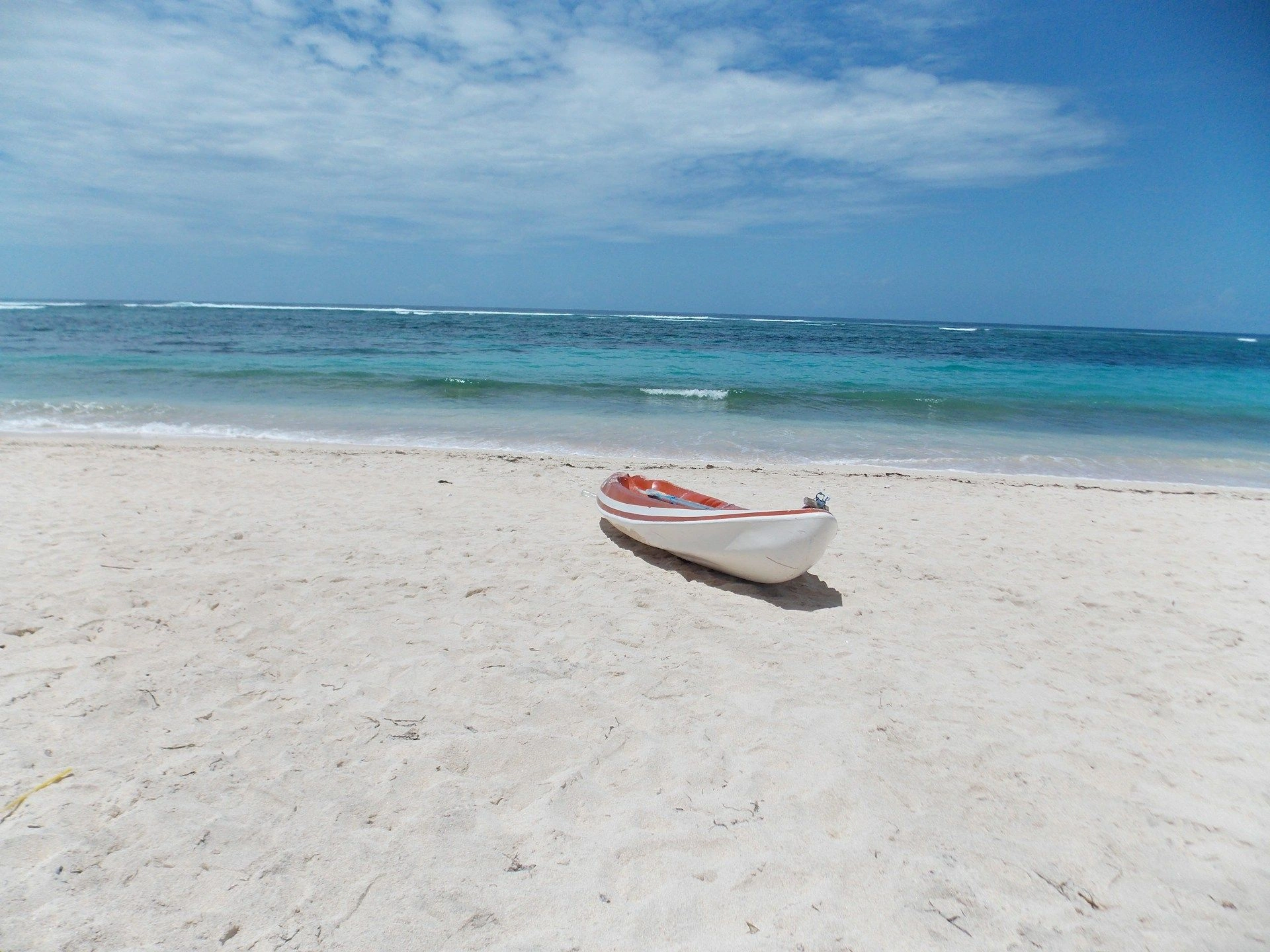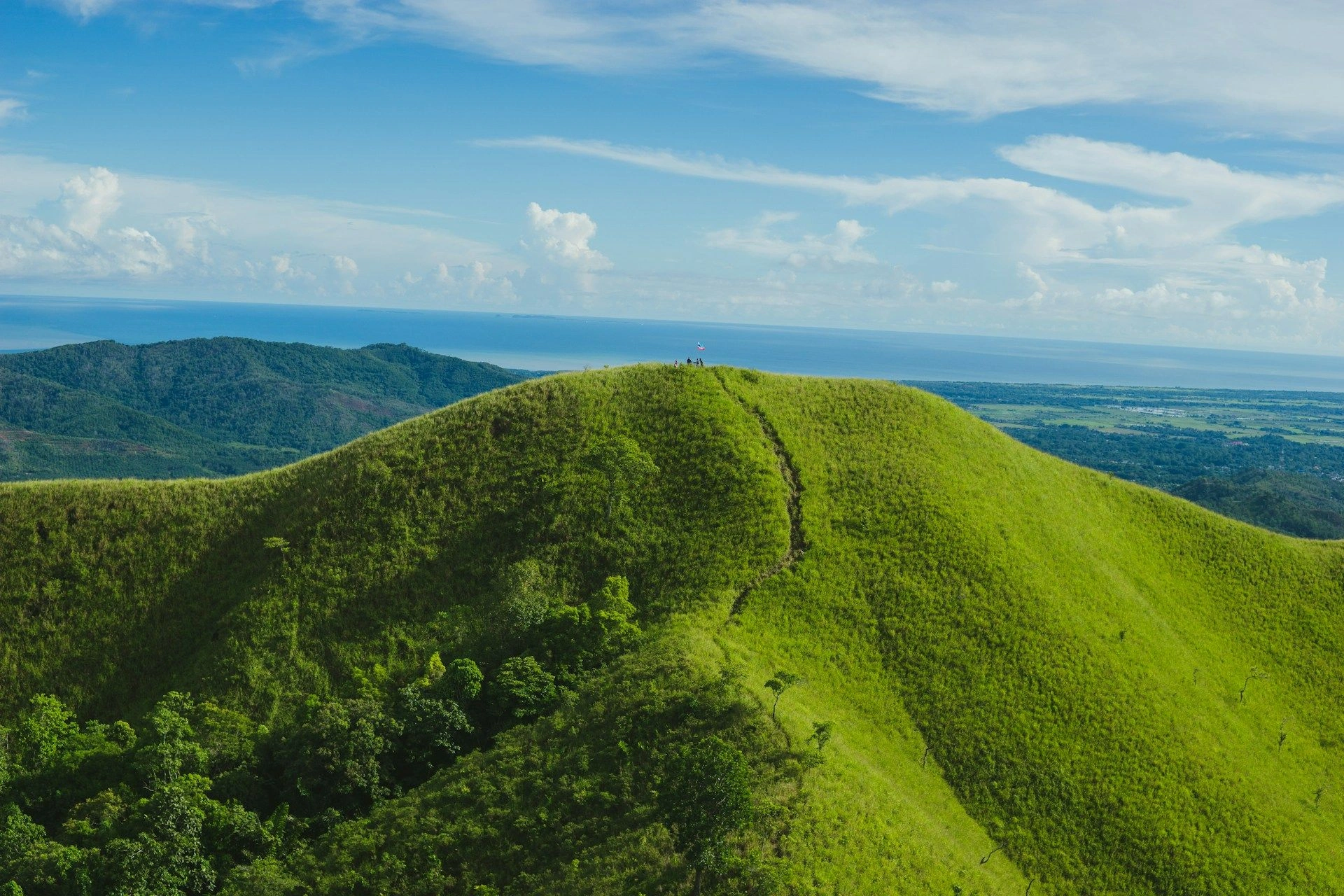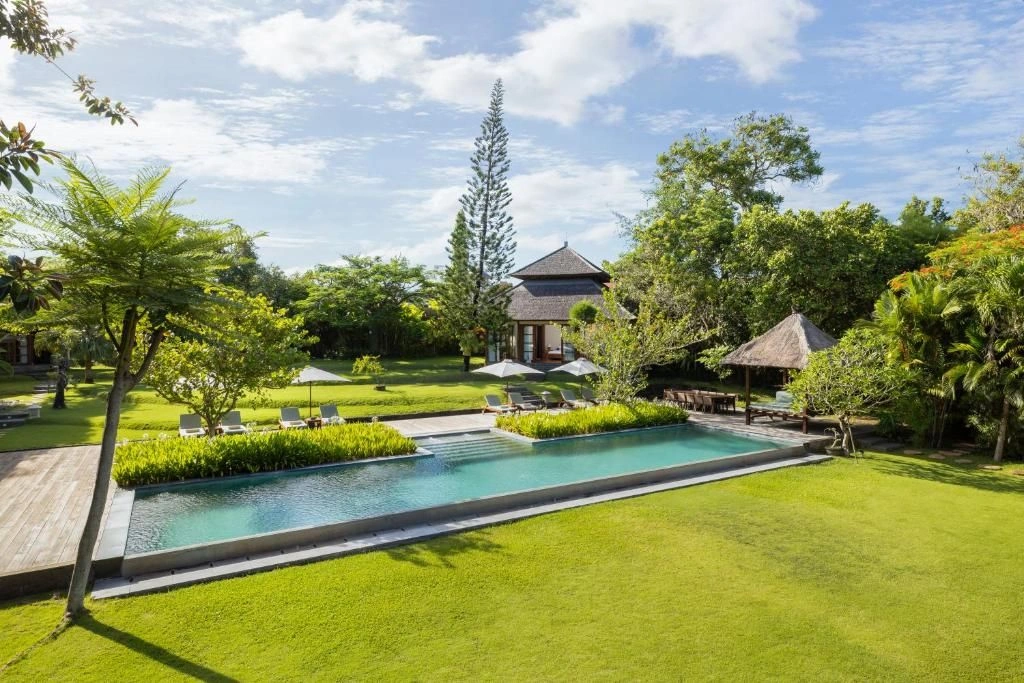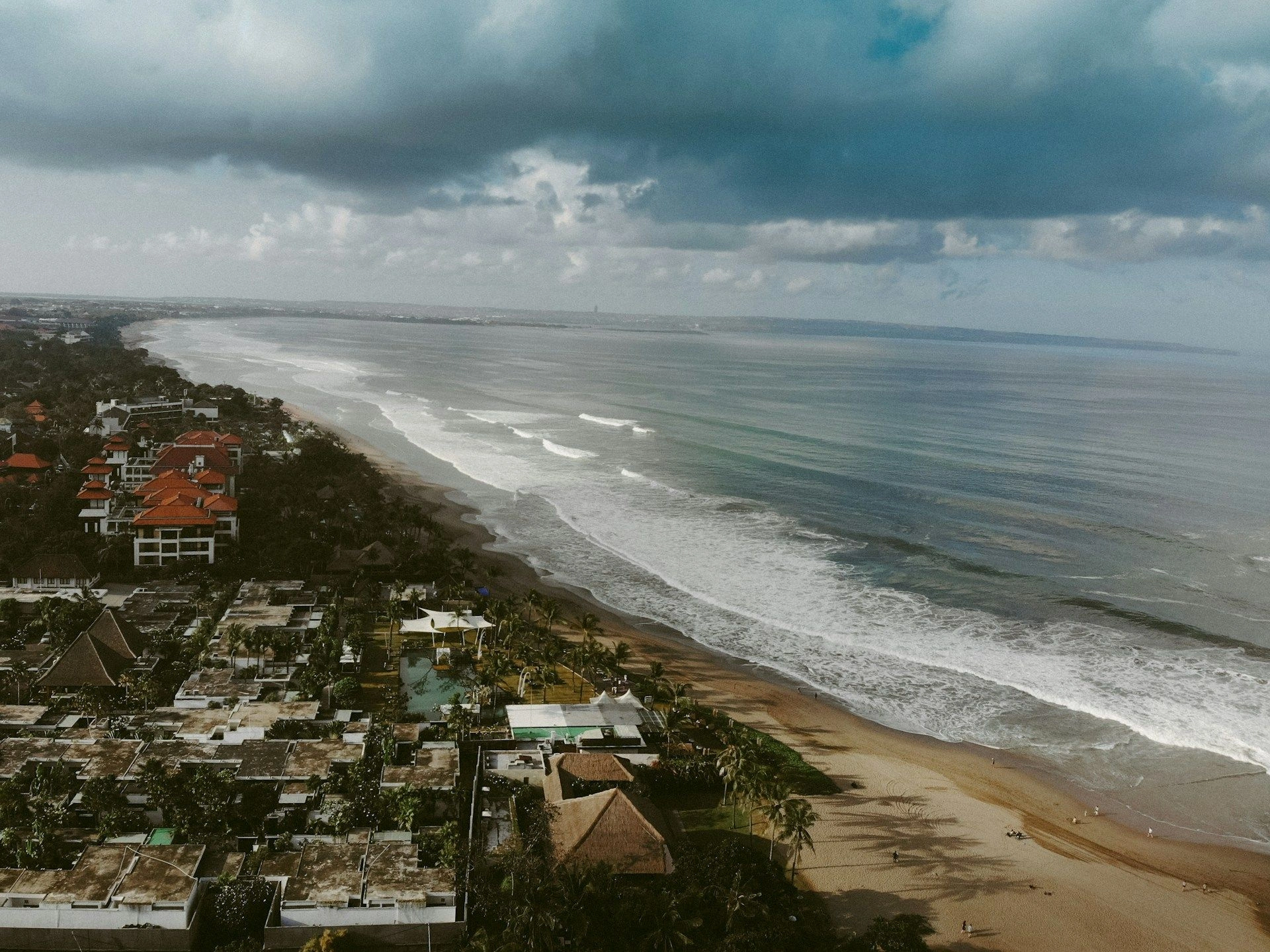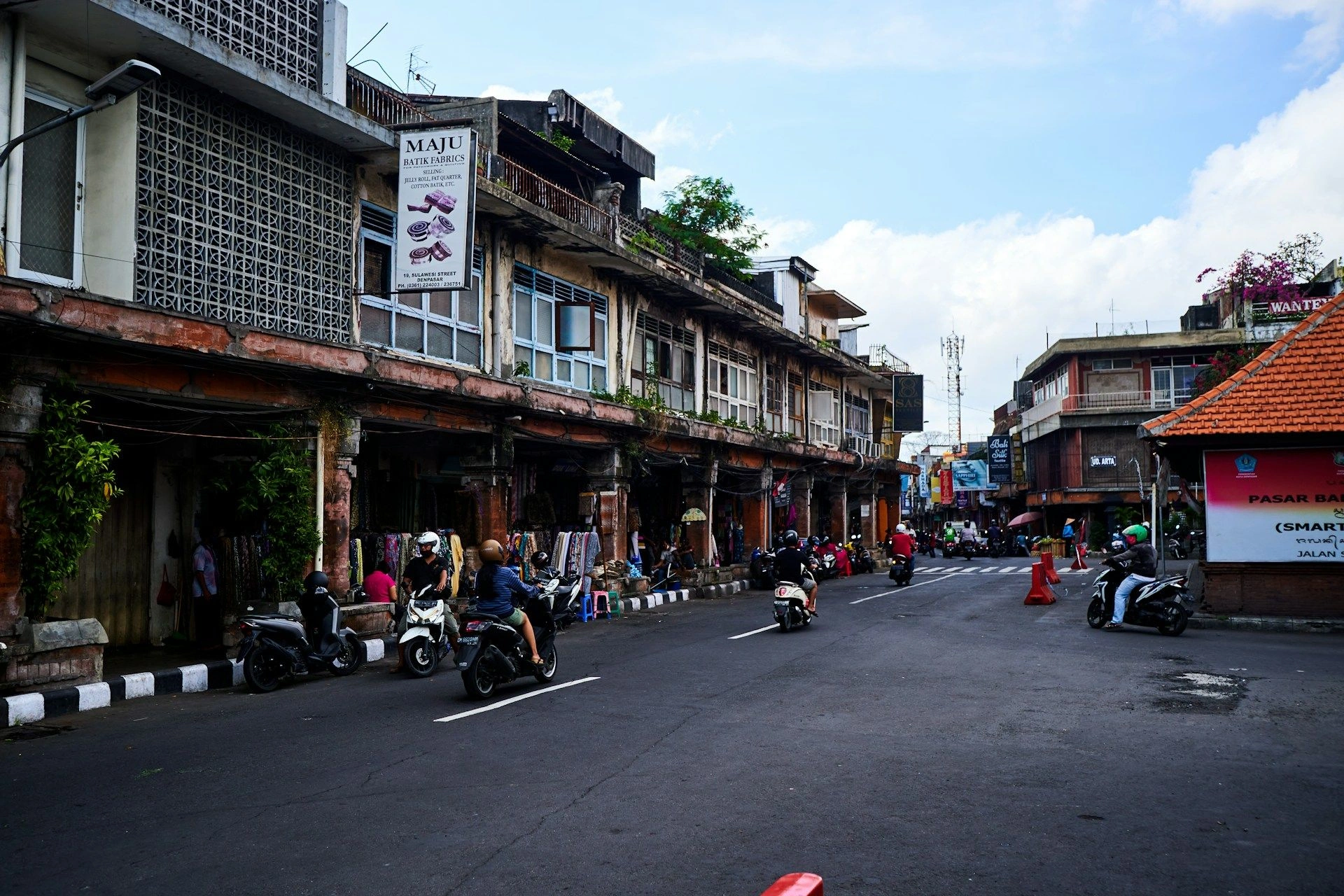Fractional Real Estate Investments in BaliTropical asset ownership, low barrierhigh occupancy rates

Advantages of Fractional
Investments in Bali
Surging Tourist Demand
Bali attracts over six million annual visitors, driving year-round accommodation needs and stable occupancy rates. Fractional investments tap into this sustained demand, with VelesClub Int facilitating access to premium beachfront properties and optimized yield management.
Favorable Legal Framework
Thai regulations allow foreigners to lease property for up to thirty years with renewable options, securing fractional ownership rights and capital protection. VelesClub Int assists investors through streamlined permit acquisition and transparent contractual structures.
Attractive Rental Yields
Emerging destinations like Bali and Phuket offer average gross rental yields of 6–8%, outperforming many regional markets. Fractional property ownership mitigates entry barriers, and VelesClub Int ensures efficient tenant placement, dynamic pricing strategies, portfolio monitoring.
Surging Tourist Demand
Bali attracts over six million annual visitors, driving year-round accommodation needs and stable occupancy rates. Fractional investments tap into this sustained demand, with VelesClub Int facilitating access to premium beachfront properties and optimized yield management.
Favorable Legal Framework
Thai regulations allow foreigners to lease property for up to thirty years with renewable options, securing fractional ownership rights and capital protection. VelesClub Int assists investors through streamlined permit acquisition and transparent contractual structures.
Attractive Rental Yields
Emerging destinations like Bali and Phuket offer average gross rental yields of 6–8%, outperforming many regional markets. Fractional property ownership mitigates entry barriers, and VelesClub Int ensures efficient tenant placement, dynamic pricing strategies, portfolio monitoring.

Useful articles
and recommendations from experts
Real estate investment in Bali and Thailand
In recent years, global investors have increasingly focused on investment property in Bali and investment property in Thailand due to the combination of strong tourism fundamentals and attractive entry valuations. Whether seeking to diversify core holdings or to capitalize on rising hospitality demand, stakeholders are drawn to fractional property in Bali and fractional property in Thailand models that offer shared ownership of luxury villas, resort suites and serviced apartments. The concept of investment property in Bali has proven resilient through market cycles, while investment property in Thailand supports robust hotel and short-term rental segments in destinations such as Phuket and Bangkok. By incorporating fractional property in Bali into a broader real estate portfolio, and similarly integrating fractional property in Thailand alongside traditional assets, investors can access growth opportunities with lower capital commitments. This dual-market strategy appeals to those exploring how to invest in Bali on a part-time basis, and to participants evaluating how to invest in Thailand through low-risk entry points. Overall, real estate investment in Bali and Thailand emerges as a compelling diversification vehicle offering stable income streams and long-term capital appreciation.
Why Bali & Thailand are attractive for investors
Bali and Thailand continue to outperform many regional counterparts thanks to consistently rising visitor arrivals and government-led infrastructure upgrades. Bali welcomed over six million international visitors in 2024, supporting high occupancy levels in prime beach and cultural hubs, while Thailand recorded nearly forty million arrivals, driven by both leisure and business travel. Strategic improvements such as expansions at Ngurah Rai International Airport and enhancements to Thailand’s Eastern Economic Corridor reduce travel friction and open new development zones. In addition, living costs in Bali and Thailand remain 30–40% below comparable European or American cities, boosting net operational returns for hospitality operators. Both markets benefit from stable political climates and regulatory adjustments aimed at attracting foreign capital, including digital nomad visas and long-stay programs that extend average guest durations. These positive dynamics underpin steady rental income in Bali and rising rental income in Thailand, creating an environment where short-term rentals and long-term leases coexist with strong yield potential. Consequently, global asset allocators rank these markets highly when assessing emerging investment destinations.
Property types and ownership models
The range of property types available for fractional schemes in Bali and Thailand caters to various investor preferences and risk profiles. In Bali, opportunities span beachfront villas with private pools, hillside boutique residences with panoramic views and eco-luxury retreats nestled within tropical landscapes. Thailand presents a similar spectrum: luxury condos in key urban centers, resort-style residences on Phuket’s western coast and contemporary serviced apartments near Bangkok’s business districts. Leasehold and freehold structures vary by jurisdiction: Indonesian law grants foreign nationals Hak Pakai (right-to-use) leases from 25 to 30 years, renewable upon expiration, while Thailand’s Condominium Act allows foreigners to own up to 49% of a condominium project outright, with land leaseholds available for villas up to 30 years. Standardized fractional property in Bali and legal frameworks for fractional property in Thailand utilize nominee arrangements, Thai-registered companies and Indonesian notarial deeds to formalize usage rights. For those evaluating how to invest in Bali at scale or exploring how to invest in Thailand alongside peers, these models simplify compliance and facilitate transparent governance of shared assets.
Legal rules for foreigners
Foreign ownership regulations in Indonesia and Thailand require careful navigation to secure fractional interests with legal certainty. In Bali, overseas investors are prohibited from holding freehold titles, but usufruct and Hak Guna Bangunan leases provide effective long-term rights under the Indonesian Agrarian Law. Completed via certified notarial deeds and registered with the National Land Agency (BPN), these instruments ensure enforceable fractional property interests. In Thailand, the Condominium Act permits foreign freehold ownership of individual units, subject to a 49% project cap, while villa and resort developments typically fall under leasehold arrangements governed by the Land Code, granting 30-year leases with extension options. Many investors form Thai limited companies to manage leasehold portfolios, accessing corporate tax incentives under Board of Investment approvals. Critical due diligence steps include validated title searches, zoning compliance assessments and Anti-Money Laundering reviews, safeguarding both rental income in Bali and rental income in Thailand streams. Properly structured, these legal frameworks protect investor capital and clarify exit mechanisms, reducing uncertainty around tenure duration and transferability of fractional shares.
Income potential and rental demand
Rental demand in both Bali and Thailand remains resilient against economic headwinds, underpinned by diversified tourism segments. Bali’s established hotspots—Seminyak, Canggu and Ubud—regularly record peak-season occupancy above 75%, with average daily rates increasing 10–15% year-on-year. Thailand’s key markets—Phuket, Koh Samui and Bangkok—see a balanced mix of leisure, MICE (meetings, incentives, conferences, exhibitions) and expatriate demand, driving occupancy rates of 65–85%. Seasonal events such as the Ubud Writers & Readers Festival and Thailand’s Songkran celebrations generate revenue spikes, enabling dynamic pricing platforms to optimize yield performance. Across both jurisdictions, gross rental yields range from 6% to 9%, and net yields after management fees and upkeep often exceed regional benchmarks. Investors reviewing rental income in Bali and rental income in Thailand should consider local tax regimes: Indonesia applies a 10% withholding tax on tourism-related revenue, while Thailand’s 12.5% rental income tax impacts net cash flows. Market intelligence shows that professionally managed fractional properties can deliver consistent net returns, making these options attractive for yield-oriented portfolios.
Why choose fractional ownership
Fractional ownership democratizes access to premium resort real estate by dividing acquisition costs, maintenance responsibilities and refurbishment expenditures among a group of investors. Entry thresholds, starting around USD 50,000 per share, contrast sharply with traditional purchases requiring half a million dollars or more for comparable standalone assets. Shared ownership reduces exposure to localized market volatility by dispersing risk across multiple participants and often multiple properties within a portfolio. Governance agreements outline usage rights, cost allocations and decision-making procedures, ensuring transparency and accountability. Professional operators manage day-to-day functions—property upkeep, guest services and revenue collection—alleviating investors from operational duties. This model streamlines processes for those seeking how to invest in Bali without committing to full ownership or exploring how to invest in Thailand without managing an entire asset. Compared to REITs or timeshares, fractional property in Bali and fractional property in Thailand offers tangible usage benefits, direct performance correlation and greater control over exit timing, making it an optimal solution for both lifestyle and income considerations.
How VelesClub Int. helps investors
VelesClub Int. delivers comprehensive support for fractional real estate transactions in Bali and Thailand, leveraging local expertise and global best practices to enhance investor outcomes. The firm’s end-to-end service spans market analysis, asset sourcing, legal structuring and operational management. During acquisition, VelesClub Int conducts field inspections, environmental due diligence and title verification to vet high-potential properties. Legal teams handle notarial deeds for Indonesian leaseholds and coordinate condominium registrations or Thai limited company formations for Thailand assets. Post-closing, VelesClub Int oversees property administration—routine maintenance, housekeeping, guest relations and dynamic pricing—using proprietary revenue management algorithms to maximize occupancy and revenue. Investors access an intuitive dashboard tracking key metrics such as occupancy, average daily rates and expense ratios, fostering data-driven decision-making. When exit becomes appropriate, VelesClub Int facilitates share transfers, resale negotiations and lease renewals, preserving liquidity and optimizing returns. By partnering with VelesClub Int., investors gain confidence and clarity on how to invest in Bali through vetted fractional schemes and how to invest in Thailand via structured, transparent processes, ultimately capturing attractive yields and sustainable capital growth.
